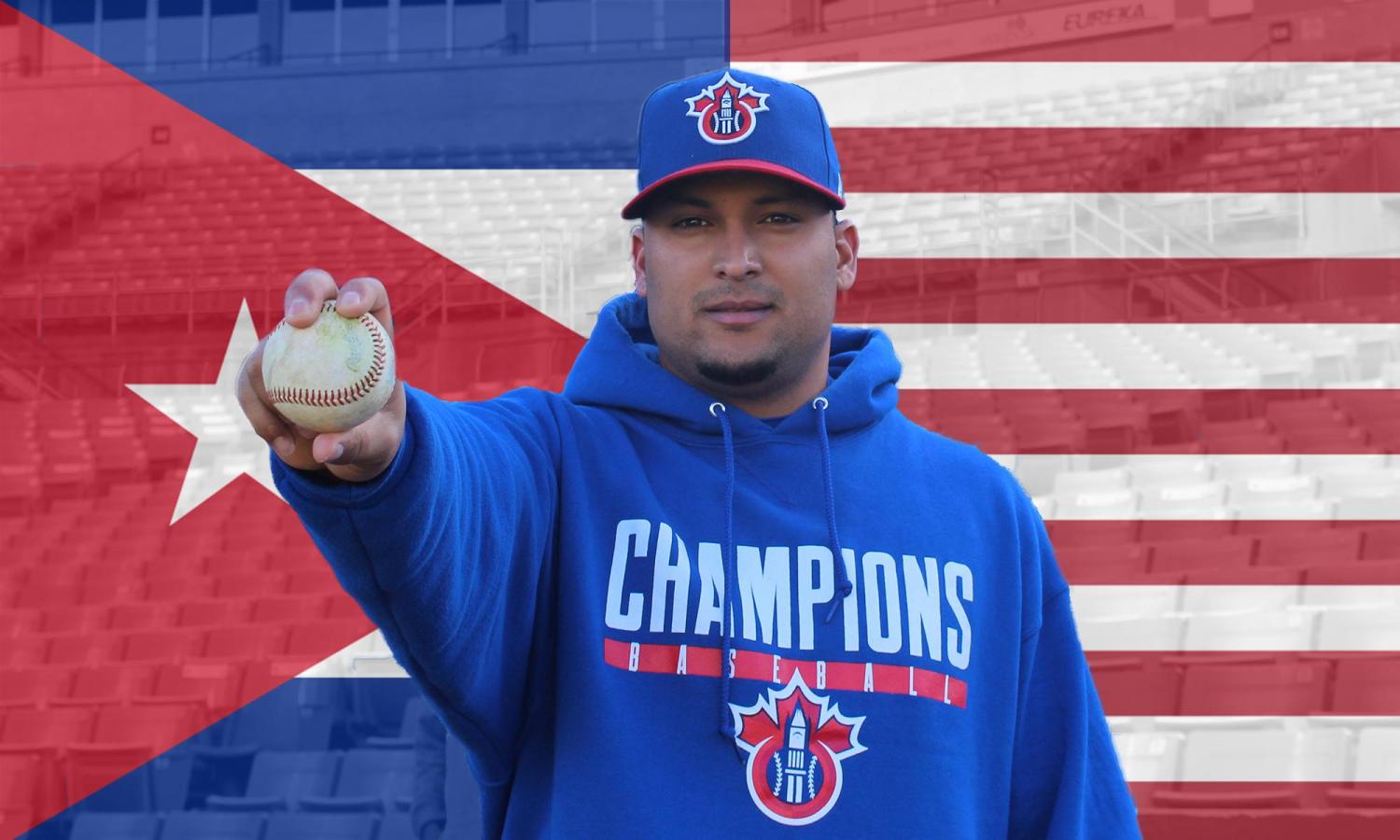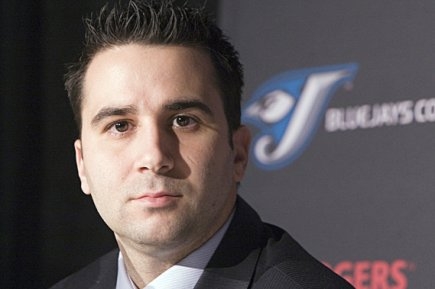
Escape on the Mound
Photos by Carlos Verde
The hardy souls remaining in the bleachers at RCGT Park find their voice in the bottom of the ninth and final inning.
“Come on, Sanchez. Strike this bum out,” rings one well-lubricated voice high down the first-base side.
It’s June 2nd, but the temperature is sinking towards 10 degrees as Raydel Sanchez — Ottawa Champions closer, Cuban national-team defector, etc. — attempts to retire the final Sussex County batter and earn a ‘save’ for the hometown team.
Few people in the ballpark know the remarkable story of the man wearing No. 26 for Ottawa; born in the village of Pellón, southwest of Havana, he grew up in Castro’s Cuba before a daring defection at the 2008 World Junior Baseball Championships in Edmonton.
“Hey Sanchez, give him the deuce,” croons an older man down the third-base line.
He doesn’t, opting for a fastball, and promptly gets Sussex County’s Steve Nyisztor to ground the ball back to the mound. Sanchez snags it, flips it to first and looks skyward — save number two on the season for the former Cuban junior star.
The odds of him ever stepping foot in Canada — first in Edmonton, where he escaped Cuban authorities and was part of a group that drew the ire of dictator Fidel Castro, and now with the independent-league Ottawa Champions — were astronomically slim, yet here he is: Winding, rocking and firing the baseball in the same country where he took his first steps of freedom.
— —
“I defected in pursuit of a dream,” explains Sanchez some four hours prior to his ninth-inning save situation. “It’s my first time in Ottawa — third time in Canada — and I’m proud and happy to be here; it’s a very beautiful city filled with excellent people.”
Following stops in places like Midland, Michigan (population: 41,957) and Joplin, Missouri (51,316) in Sanchez’s career, Ottawa represents a chance to play in a larger urban area.
“What an opportunity,” beams the Cuban right-hander. “It’s a magnificent stadium that’s been maintained well, we have a lot of talent on the ball club. I’m really impressed with everything — the team, stadium, city and people are all fantastic.”
 Thus far, Sanchez has slotted well into the back end of Ottawa’s bullpen. His 3.24 earned-run-average is the best of his professional career, and he’s given the Champions a second quality arm to complement that of Victor Beriquete — something that makes Ottawa manager Hal Lanier’s late-game decisions easier.
Thus far, Sanchez has slotted well into the back end of Ottawa’s bullpen. His 3.24 earned-run-average is the best of his professional career, and he’s given the Champions a second quality arm to complement that of Victor Beriquete — something that makes Ottawa manager Hal Lanier’s late-game decisions easier.
The 75-year-old Lanier knows his baseball, having spent nine years and nearly 1,200 games in the major leagues with the Giants and Yankees in New York City prior to embarking on a long, storied managerial career.
And with that wealth of experience comes his eye for talent, which singled Sanchez out at a free-agent camp in Florida this past winter.
“I saw Raydel for 12 straight days there, and he stood out,” says Lanier, who back in 1973 as a player collected the last hit at the original Yankee Stadium. “He’s a good guy to have on our ball club; he runs, he’s honest, he throws in between (outings) and he can (pitch) numerous days in a row.”
Over his more than half-century in the game, Lanier has witnessed baseball’s shift towards multiculturalism with ever-increasing numbers of Latin and Black players.
“Latin players have had a tougher time, especially the ones coming from Cuba,” explains Lanier. “I managed in the Dominican Republic for two years, and I saw eight-year-old kids playing with a rock and stick — it’s very different.”
He knows that Raydel’s path — coming through the national system, defecting at a world-junior tournament, and banking a life on the pursuit of a dream — hasn’t been an easy one.
“I’ve got to salute those players.”
— —
 Nine years after slipping through the fingers of Cuban team officials in Edmonton, Raydel Sanchez is at peace with his decision.
Nine years after slipping through the fingers of Cuban team officials in Edmonton, Raydel Sanchez is at peace with his decision.
“I’m totally happy in the United States,” says Sanchez, who calls Naples, Florida home in the offseason. “It’s basically my home now, and I’m very lucky to live the life I have.”
And while a major-league debut is unlikely to come to fruition, as it has for fellow 2008 world-junior defector and Detroit Tigers shortstop Jose Iglesias, Sanchez bears the game no ill will.
“My life began with baseball, and it will end with baseball,” he says with determination. “It’s my life, and I’m going to keep fighting until I can’t do it anymore. Then I’ll become a coach or something — I’ll never stop thinking about the game.”
As for the country he left behind, which sits on the brink of re-entry into the global order after more than 50 years of exile, Sanchez wants freedom.
“I want to see a completely free, open Cuba,” he says. “A Cuba that has its own rights, like any free nation — I want that for my people.”
— —
The glaring lights of RCGT Park radiate off Sanchez as he makes the slow, lonely closer’s jog to the mound to pitch the ninth inning. He’s thrown many innings in many places, but tonight he is just a man with a job to do and the talent to do it.
After all, the 60-feet, six-inches separating pitcher and batter are still 60-feet, six-inches — regardless of whether you’re in Havana or Ottawa.













